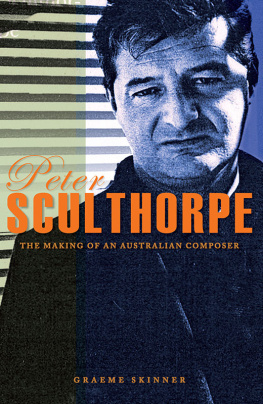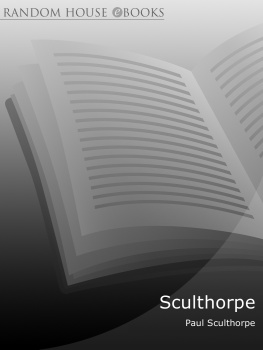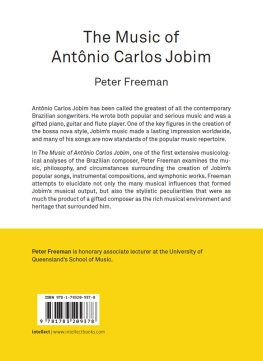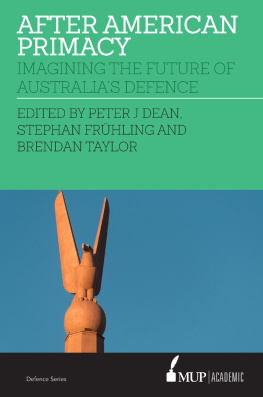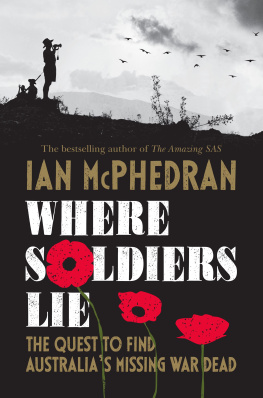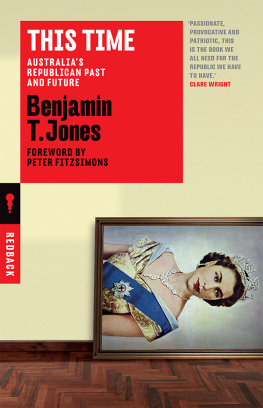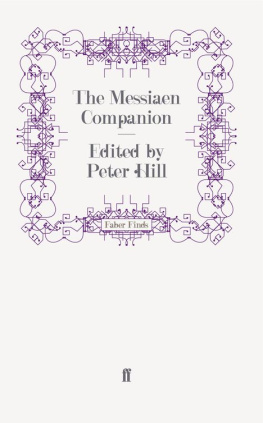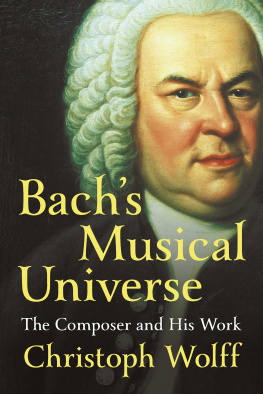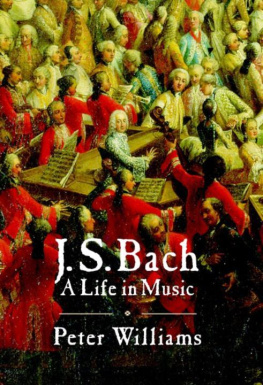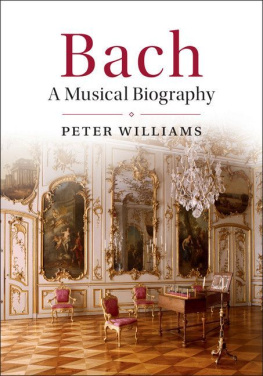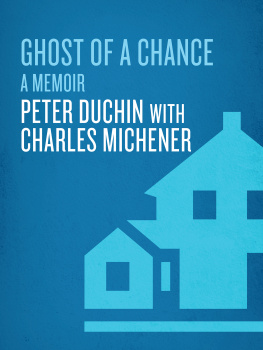Peter
SCULTHORPE
Graeme Skinner lives in Sydney. An independent scholar, musicologist, writer, and researcher, he has specialist interests in the history of Australian music and early Spanish chant and polyphony. He holds a Bachelor of Music (Honours) degree from the University of Melbourne (1983), and a Ph.D from the University of Sydney (2011). He was recipient of a 2007 National Library of Australia Harold White Fellowship. He is an Honorary Associate of the University of Sydney, Sydney Conservatorium of Music, where he curates a colonial and early Federation era music history research website Australharmony.
To Isabella, Edmund, Eleanor, and Rosie
Graeme Skinners biography is also a social history, examining Sculthorpes unique role in the creation of Australian musical modernism in the 1960s an important era in Australias cultural evolution. The book includes a formidable supporting cast of mentors, collaborators and friends, such as choreographers Laurel Martyn and Robert Helpmann; conductors Bernard Heinze, John Hopkins and Eugene Goossens; patron of the arts Nugget Coombs; the Witch of Kings Cross Rosaleen Norton; academics Rex Hobcroft and Donald Peart; reviewers Roger Covell and Curt Prerauer; painters Russell Drysdale and Sidney Nolan; designer Kenneth Rowell; filmmaker Michael Powell; playwrights Catherine Duncan and Tony Morphett; writers Patrick White, Alan Moorehead and George Johnston; poets James McAuley and Chris Wallace-Crabbe; actors Barry Humphries, Ruth Cracknell, Max Oldaker and Helen Mirren; and almost every Australian composer of note from Percy Grainger onwards.
Peter
SCULTHORPE
THE MAKING OF AN AUSTRALIAN COMPOSER
GRAEME SKINNER

A UNSW Press book
Published by
University of New South Wales Press Ltd
University of New South Wales
Sydney NSW 2052
AUSTRALIA
www.unswpress.com.au
Graeme Skinner 2007, 2015
First published 2007, updated 2015
This book is copyright. Apart from any fair dealing for the purpose of private study, research, criticism or review, as permitted under the Copyright Act, no part may be reproduced by any process without written permission. Inquiries should be addressed to the publisher.
National Library of Australia
Cataloguing-in-Publication entry
Skinner, Graeme, 1960 author.
Peter Sculthorpe: the making of an Australian composer/Grame Skinner.
Includes index.
ISBN 9781742234618 (paperback)
9781742242163 (ebook)
1. Sculthorpe, Peter, 19292014 Peter sculthorpe 19292014 Influence. Includes bibliographical references and index. Composers Australia Biography. Music Australia 20th century. Music Australia 20th century History and criticism.
780.92
Front cover photo Robert Goodman, 1965
Back cover Sculthorpe Family
All reasonable efforts were made to obtain permission to use copyright material reproduced in this book, but in some cases copyright holders could not be traced. The author and publisher welcome information in this regard.
What the press said
[An] absorbing book carefully documented chronicle quiet, clear and unpartisan Skinners mastery of his sources sets high standards for biographical thoroughness and provides a vivid sense of Sculthorpes day-to-day discovery of music and people in a significant period of our artistic history.
Roger Covell, The Sydney Morning Herald
Skinners new biography tells the story of how, in the 1960s, an appetite emerged among influential voices for a distinctive Australian musical culture and of how a generation of talent rose to meet it.
Peter McCallum, The Sydney Morning Herald
in the tradition of monumentalizing biographies of great men, such as Christoph Wolffs recent biography of Bach and Howard Pollacks of Gershwin [its] accumulation of detail and the cleverly subtle interweaving of history and music analysis not to mention the smooth prose make it a marvellous achievement If [the sequel] is as accomplished as this one it will be another landmark in Australian musicology.
Suzanne Robinson, Musicology Australia
Skinners portrait of a younger Sculthorpe will conjure an imagined place on your shelf alongside David Marrs biography of Patrick White.
Robyn Holmes, Senior Curator, National Librtary of Australia
Graeme Skinners superb new biography [this] meticulously researched book, drawing on copious archival material such as letters and press notices, as well as interviews both with Sculthorpe and many of his associates, has the feel of a grand symphony, its peculiar music made audible by fact rather than intrusive authorial interpolation.
William Yeoman, The West Australian
Graeme Skinner has put together a remarkable piece of scholarship which will stand as an invaluable tool for research not only for aficionados of Sculthorpes life and work, but for anyone with an interest in this tumultuous period of Australias cultural history.
Elliott Gyger, Australian Book Review
This superb book is a fitting monument to Peter Sculthorpes place in Australian music.
Christopher Bantick, The Hobart Mercury
Preface (2015)
Forty years, almost exactly, separated the last events of 1974 chronicled in this book, and Peter Sculthorpes death, on 8 August 2014. Illness sadly depleted and disabled him during his last year a decline much like that hed watched his own father go through in 1961. But up until then he appeared to be as healthy, happy and productive as ever. True, he had composed no major new works since his serenely lovely Eighteenth Quartet (two more than Beethoven, as he enjoyed pointing out) completed on his 81st birthday in 2010. But his last significant project was no mean feat for someone in his eighties, and The Great South Land, for soloists, chorus and orchestra based on his 1982 television opera Quiros, occupied him fully right up to its premiere at the Canberra International Music Festival on 11 May 2013.
When this book appeared in 2007, I think Peter was still hoping that I would get around to writing its sequel covering the rest of his life from 1974 onward while he was still around to read it. This was not to be. But, even had I wanted to, Im not sure that I could have done it, and him, justice quite so soon. In 2007, thirty years at the least safely separated both Peter and I from the sometimes surprising self that he remembered or was reminded of, and the subject that I knew only in his more rounded and contented later manifestation. Reviewing this book, a former student of his, Elliott Gyger, was frankly surprised at the sheer messiness of so much of the earlier career of a man he knew as orderly and self-composed to a fault. Historical distance made this easier for both of us subject and biographer to deal with, but I wasnt so sure that Peter would be quite as pleased with a sequel that dealt critically with his life and work still in progress. Malicious reviews, and even more so the lukewarm ones that rankle almost as much, affected him as badly as anyone else, though he managed generally to make it through life without holding grudges.
Successful elder artists usually end up being cast in a golden glow, especially if they have not actively courted controversy. Even Peters advocacy in some of his later works of liberal political causes that his generation might have hoped were no longer in need of artistic underpinning, but that were newly contentious with some Indigenous and refugees rights, climate change and the environment, the lunacy of illogical and illegal warmongering seems not to have tarnished his image unduly, even among music lovers on the far right.
Next page
